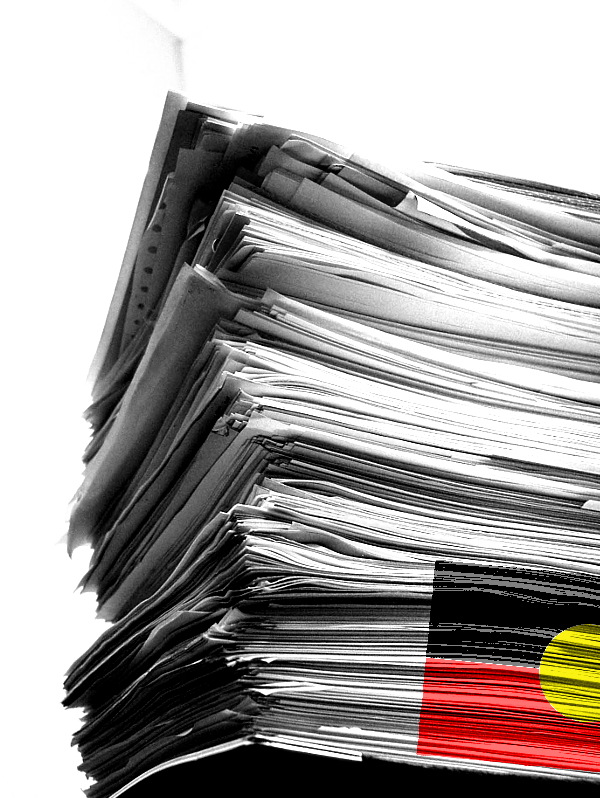Price claims Voice divisive
 Opposition Indigenous Australians spokesperson Jacinta Nampijinpa Price has appeared in the first advertisement for the Voice to Parliament ‘No’ campaign.
Opposition Indigenous Australians spokesperson Jacinta Nampijinpa Price has appeared in the first advertisement for the Voice to Parliament ‘No’ campaign.
In the nine-minute ad, Senator Price shares her experience growing up in a blended family with an Indigenous mother and a white father.
“What's important to me is that we don't divide ourselves along the lines of race in this country,” she said.
“I don't want to see my family divided along the lines of race because we are a family of human beings and that's the bottom line.”
Senator Price's husband appears in the ad too, claiming that constitutional recognition of the first Australians might destroy his family.
“Later this year politicians will be asking us to vote on a major change to our constitution. They want to establish a so-called Voice to parliament. This is a really big deal,” Senator Price added.
“The constitution is the rule book for governing the country and they want the rules to change.
“I'll be voting ‘No’ because this will not unite us, this will divide us.”
Also this week, Torres Strait Islanders and far north Queenslanders addressed a parliamentary inquiry examining the wording of the proposed constitutional change.
Torres Strait Island Regional Council Mayor Phillemon Mosby said the referendum is a chance to address unfinished business.
“We stand with our Aboriginal brothers and sisters of this country, as Torres Strait Islanders, we support the Voice to parliament,” he said.
“We feel that this is unfinished business and continues the job that was done by our predecessor, the late honourable Eddie Mabo, who overturned the doctrine of terra nullius.”
Additionally, some of Australia’s preeminent constitutional law experts have given strong backing to the proposed Voice to Parliament during a parliamentary committee hearing.
Former High Court justices and constitutional experts dismissed criticisms about the scope and obligation to consult the Voice body.
It has been somewhat spuriously claimed that the inclusion of the words “executive government” in the proposed addition to the constitution could open up the Voice to advise on Reserve Bank interest rates or Defence Department procurement.
Bret Walker SC, one of Australia’s most regarded constitutional barristers, said that suggestions the Voice would clog the courts with legal challenges is “too silly for words”.
“This notion that there is an implication threatened in the proposed Subsection 2, whereby the validity of executive action - multifarious decisions great, small and middling by officials great, small and middling - will be somehow jamming the courts from here to kingdom come as a result of this enactment is really too silly for words,” Mr Walker said.
“There is nothing in the wording in the resemblance of s129, as proposed, to the kind of laws that we ransack in order to say that's a mandatory relevant consideration.”
Former High Court justice Kenneth Hayne also rejected the criticism.
“The Voice will not waste its social or political capital by exploring the outer range of its scope of representation,” Mr Hayne said.
“That's a distorting possibility or an extreme example.
“I can not see anything in the proposed draft that comes anywhere near providing anything like a veto.”
Late last week, the NSW Bar became the first major lawyer’s group to give a legal tick to the current wording of the proposed constitutional amendment for the Voice to Parliament, calling it “sound and appropriate”.
The Bar Association said; “Many of the pre-eminent constitutional law senior counsel within Australia practice from NSW”.
“The Bar Council has consulted with these experts in its consideration of the important question of the wording of the amendment.
“The Bar Council voted unanimously to endorse the proposed wording for the Constitution alteration to enshrine a First Nations Voice as sound and appropriate, and to support public advocacy in support of a Yes vote for this substantive form of Constitutional recognition.”
The question to be put to the Australian people at the 2023 referendum will be:
“A Proposed Law: to alter the Constitution to recognise the First Peoples of Australia by establishing an Aboriginal and Torres Strait Islander Voice.
Do you approve this proposed alteration?”
The proposed law that Australians are being asked to approve at the referendum would insert a new section into the Constitution:
"Chapter IX Recognition of Aboriginal and Torres Strait Islander Peoples
129 Aboriginal and Torres Strait Islander Voice
In recognition of Aboriginal and Torres Strait Islander peoples as the First Peoples of Australia:
-
There shall be a body, to be called the Aboriginal and Torres Strait Islander Voice;
-
The Aboriginal and Torres Strait Islander Voice may make representations to the Parliament and the Executive Government of the Commonwealth on matters relating to Aboriginal and Torres Strait Islander peoples;
-
The Parliament shall, subject to this Constitution, have power to make laws with respect to matters relating to the Aboriginal and Torres Strait Islander Voice, including its composition, functions, powers and procedures.”
More details are accessible here.







 Print
Print